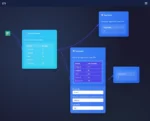In a modern analytics environment, data doesn’t stay stationary—it constantly transforms, integrates, and morphs to deliver strategic insights. However, as data moves and evolves, its classification tags—privacy, sensitivity, compliance, and ownership—must remain consistent. Businesses that successfully propagate these data classification tags through transformations not only safeguard their operations but also optimize their decision-making capacity. Without rigorous procedures, data flows become opaque, risking non-compliance, inefficient governance, and a compromised ability to harness valuable insights. Here, we’ll delve into why propagating data classification tags through data transformation processes is critical, detailing the methods, challenges, and solutions savvy organizations implement to keep data governance and ethics front and center throughout evolving data landscapes.
Understanding the Importance of Data Classification Tags
Data classification tags enable organizations to systematically categorize data according to its sensitivity, type, risk, and required treatments. These labels define not only the nature of the information—such as PII (Personally Identifiable Information), confidential business metrics, or publicly accessible market data—but also dictate the standards and processes applied during analytics pipelines, sharing, insights generation, and reporting activities. Reliable classification tags allow businesses to consistently identify and apply responsibility and governance standards throughout data lifecycles.
Proper tagging becomes especially pertinent during data analytic workflows, whether in traditional ETL processes or modern data lakehouse frameworks. In data lakehouse implementations, for example, combining structured data from warehouses with raw data lakes significantly increases efficiency while introducing heightened complexity. Explicitly propagated tags enable analysts and data engineers to maintain consistent internal compliance levels, ensuring sensitive data continues to carry appropriate protection as it flows through diverse storage environments.
Moreover, dependable data classification is crucial from an ethical standpoint. Keeping data sensitive labels aligned wherever data journeys ensures organizations respect privacy, manage confidentiality effectively, and mitigate bias risks. These considerations are foundational for responsible data analytics practices, highlighted further in our recent discussion of ethical considerations in data analytics. Maintaining meticulous classification protocols enables data-driven organizations to engender trust both internally and externally.
Challenges Faced in Tag Propagation Through Data Transformations
Despite understanding their importance, organizations often encounter technical and procedural hurdles when propagating data classification tags at scale. One key challenge lies in the complexity of modern analytical environments, which blend structured and unstructured datasets across multiple platforms and applications. Frequently, metadata describing data sensitivity and privacy risks doesn’t get passed along consistently, becoming diluted or lost throughout data transformations. As data assets traverse diverse systems—such as Apache Spark environments, databases like PostgreSQL (something we specialize in through our PostgreSQL consulting services), operational stores, and cloud platforms—ensuring consistent metadata propagation is challenging yet critical.
An ineffective propagation approach leads to reduced visibility into the true nature of data assets downstream. Analysts, compliance officers, and business stakeholders can lose track of their responsibilities, inadvertently mishandling or misusing sensitive or confidential information. A disconnect between data classification and usage introduces compliance challenges that yield financial penalties, potential data breaches, and diminished consumer trust.
A significant technical obstacle also emerges from transformations themselves—data aggregation, anonymization, and modification can obscure the original sensitivity level. Without stringent protocols and sophisticated tagging mechanisms, recognizing data sensitivity becomes difficult post-transformations, potentially exposing companies to risks described in our detailed exploration of handling sensitive data in ETL processes. Resolving this challenge requires thoughtful strategy, tooling, metadata frameworks, and robust governance practices across an organization’s data ecosystem.
Strategies for Effective Tag Propagation Across Data Transformation Pipelines
With awareness around these concerns, progressive organizations adopt initiatives that seamlessly integrate classification tags into every step of transformative data workflows. Robust data governance frameworks incorporating standardized metadata schemas—evolving into processes such as a comprehensive pipeline metadata registry implementation—play a crucial role. Such metadata registries explicitly track data lineage and sensitivity attributes, facilitating more transparent and automated propagation of tags across technical teams and stakeholders.
Automation and clear data lineage tracking form the backbone of efficient tag propagation strategies. Modern platforms and custom-built frameworks increasingly handle tag propagation lifecycle management, leveraging metadata-driven automation to reduce manual tagging error and ensure accuracy. Newer tools like Dev3lop’s Canopys Task Scheduler can help further orchestrate and automate tagging processes, improving seamless governance across complex data cycles.
Additionally, applying hosted metadata registries as architectural foundations simplifies managing metadata propagation throughout data deployments, including cloud databases, data lakes, and advanced analytical systems. From comprehensive classification schemas to intelligent metadata mapping across transformations, comprehensive strategies ensure robust governance around data flow visibility, compliance checks, and transparent data-driven insights.
Leveraging Metadata to Improve Data-driven Decision-Making
Consistently propagated data classification tags directly influence an organization’s capacity for strategic, ethical, and trustworthy data-driven decisions. Integrating clear tagging ensures traceable data origins, well-understood sensitivity levels, and uninterrupted compliance statuses, enabling business leaders to confidently support decisions based on accurate, transparent, and ethically sourced insights. As established in our recent post exploring methods for enabling data-driven decision-making in 2023, organizations embracing rigorous metadata management frameworks gain significant competitive leverage by standardizing and automating their data classification schema propagation.
Systematic tag propagation also significantly enhances the quality and accessibility of analytics across teams of varying technical competencies. For example, creating visualizations that can clearly represent sensitive datasets requires consistency in tag propagation—particularly critical when designing accessible visualizations suitable for audiences with diverse abilities and data understanding. Proper data classification supports analytic storytelling by enabling better context setting in visual presentations, as highlighted in our previous insights around the art of storytelling through data visualization.
In short, proper metadata propagation results in clear variable context, enabling analysts, executives, and other stakeholders across all enterprise levels to make confident, informed, and ethically responsible decisions.
Balancing Data Classification with Privacy and Consent
Effective data classification practices tied into business transformations naturally improve overall compliance and responsible data privacy management efforts. Thoughtful propagation of tags connects classification schemas to privacy policies, permission management, and consent management systems seamlessly. Incorporating privacy-conscious data classification approaches into transformations ensures that an organization keeps clear records of data collection practices alongside specific identifiers on permissions and user consents, a key topic explored further in our blog on balancing data collection and user privacy with consent management.
Automated metadata propagation can further streamline internal auditing functions and regulatory reporting, drastically reducing the burdens of manual compliance tasks while ensuring audit trails remain detailed and readily accessible. Transparent data lineage coupled with accurate sensitivity tagging enables compliance and security teams to identify privacy concerns proactively, driving preventive corrective actions before exposures turn into risks or violations.
Throughout the planning and execution of data transformations, embedded systems that propagate data classification tags effectively align business strategies with ethical practices, ultimately creating a foundation of trust among users, internal stakeholders, and regulators.
Conclusion: Future-Proofing Through Consistent Tag Propagation
In today’s data-intensive landscape, transforming structured and unstructured data into actionable intelligence remains foundational for innovation-driven enterprises. Approaching those transformations intentionally with consistently propagated data classification tags secures privacy, enforces compliance, and supports ethically robust analytics. As regulations evolve and consumers grow increasingly sensitive about their data’s usage, organizations who prioritize metadata-driven governance will stay a confident step ahead—safeguarding their operations, fostering stronger stakeholder trust, and reaping greater competitive insight from data assets.
Thank you for your support, follow DEV3LOPCOM, LLC on LinkedIn and YouTube.

























